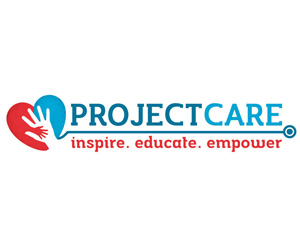“Did you know every three seconds someone around the world develops dementia? Isn’t that insane?” shared Cassandra Seah, 24. “Our vision is to starve off dementia, and to retain personalities. Having a loved one forget who you are is incredibly painful. We want families to have as much time with their loved ones as possible.”
She found her passion to help those with dementia from her 80-year-old grandfather who showed signs of dementia two years ago. She shared: “He forgot how to come home, a home he had been living in for the past 50 years. It pained me greatly but drove me to give back in whichever ways I could.”
She first started working on a senior interaction gadget, one that encouraged social interaction and increased cognitive stimulation, and at the same time, delay the onset of dementia and mild cognitive impairment. This then led to MatchLink, a multi-sensorial kit for dementia patients developed during a one-year undergraduate collaboration with Jurong Community Hospital and used to improve cognitive and motor functions. The game is particularly good for seniors who want to exercise their brain, as well as “rehabilitation” for those with mild to moderate dementia.
“Many other sensory games in the market focus on the tactility or olfactory aspect without incorporating the various skills which can further cognitively stimulate those with dementia and prevent further decline,” said Cassandra.
The game has been played with volunteers, nurses and occupational therapists with persons from varying intensity of dementia, and have gotten positive feedback. Feedback includes that “it improves the person’s mood, compliance, orientation of the new environment over time”, shared a senior occupational therapist. A programme executive from a wellness centre shared that “collecting data from gameplay allows us to have a better way to assess seniors’ performance, and raising warning flags can allow us to refer cases for professional medical assessment”.

The game comes with up to eight levels of gameplay – from identifying colours to remembering what the colour and/or texture reminds one of – that can even be played between children and seniors for intergenerational bonding, as well as with caregivers. A scoring sheet is also provided to track progress of gameplay over time including the player’s improvement and the skills they are using such as visual, memory, sensory, coordination and orientation.
According to Cassandra, so far, they have gotten 54 orders of the game. Beyond praises on the ground, MatchLink has also won the International Design Excellence Awards (IDEA) Bronze level award by the Industrial Designers Society of America, competing against more than 1,800 entries. Past winners of the IDEA award include the Oculus Rift, Tesla’s Model S and even Apple’s original iPhone.
Besides MatchLink, Cassandra and her partner, 24-year-old Sim Cheng Yu, both from a company called Generation Connect, have also created SenseLink, a physical, cognitive and multi-sensory interactive rehabilitative tool for occupational therapists to engage persons with dementia on multiple levels. This multi-sensory stimulation incorporates the use of the patient’s sense of smell, touch, sight and hearing – nature’s elements, the ocean, sea creatures, mountains and gardens are included in the themes to inspire a nostalgic experience, and they are encouraged to stretch, bend, lift and move objects, training the motor skills that are needed for daily living activities.
MatchLink, which includes 24 textures, two whiteboards, one set of markers and one manual, is being played by Cassandra’s grandfather. “After taking the medications, he plays my game and can do all the different levels!”
To purchase MatchLink, which costs S$89.90, go to: www.genconnects.org/shop.














